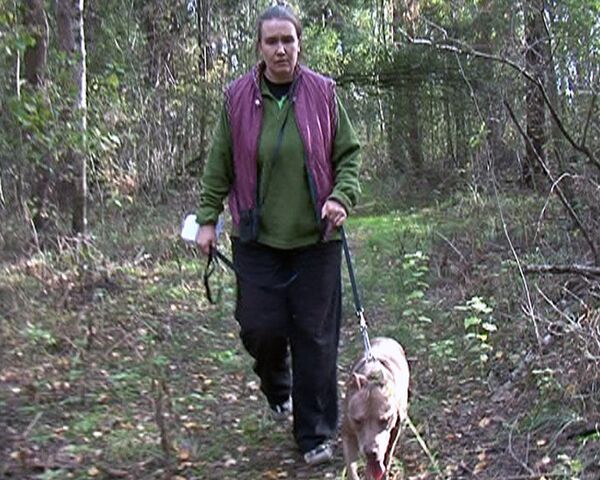As Russia marks International Missing Children's Day for the first time on Friday, RIA Novosti takes a look at a volunteer organization that has grown out of tragedy to become one of the first ports of call for many desperate parents
When five-year-old Liza Fomkina went missing near Moscow almost two years ago, a cry for help on an online forum attracted hundreds of people to assist in what had been until then a poorly-organized search. That search ended tragically, but saw the birth of a volunteer organization that has since helped find scores of missing children.
“Police took part in the search for Liza, but there were only a few officers involved for the first few days, after which they stopped looking for her completely,” said Grigory Sergeev, one of those who answered the online cry for assistance.
After Liza and her 39-year-old aunt, Maria, who suffered from mental problems, were found dead in a forest in the Orekhovo-Zuyevo region nine days after their September 13, 2010 disappearance, the volunteers who had joined in the search set up an organization in the girl’s name.
The Liza Alert organization today boasts some 3,000 volunteers in Moscow and the surrounding regions and has taken part in over 200 searches for missing adults and children, most of which have been successful.
“Unfortunately, though, not all the searches have had a happy end,” said Sergeev, who is now a search coordinator with the Moscow-based organization. “And some have yet to end.”
Sergeev also said that the work of the police and the emergency services in Moscow and the surrounding regions has improved significantly in the two years since the disappearance of Liza Fomkina.
“They call us now when a child goes missing,” he said. “But Russia is very big and the situation leaves much to be desired in many other regions.”
“At first it seemed like we were doing the work of the police and the emergency services,” admitted Liza Alert volunteer Galina at a downtown Moscow exhibition to highlight the organization’s work on Friday. “But we’ve taught the police a lot of things and the situation is now a lot better, generally.”
The group is just one of a number of Internet-inspired grassroots organizations that have sprung up in Russia in recent years, from groups exposing government corruption to those seeking to defend areas of natural beauty from developers.
Police were keen to stress the value of Liza Alert, whose volunteers come from a wide range of occupations, and include students, housewives, businessmen and pensioners.
“Volunteers provide us with serious assistance in informing the public and attracting attention to the disappearance of children,” said Moscow police official Mikhail Karpunin. “We work mainly with Liza Alert, and cooperation is becoming stronger and more effective.”
Official Interior Ministry figures indicate that some 15,000 children go missing in Russia every year, most of whom are runaways. The figure is lower than average for Europe, but Liza Alert volunteers say the true number could be much higher.
“They say the figures are lower than in Europe,” said Galina. “But the authorities here have only just started compiling figures, so it’s hard to say if they are entirely accurate.”
Liza Alert volunteers took part in a high-profile search for nine-month-old Anna Shkaptsova, who was reported missing in the western Russian city of Bryansk on March 11. Police and volunteers spent almost the next three weeks in a desperate search for her, until it was revealed that she had been murdered by her father. Her parents then invented the story that someone had stolen the child from her pram.
“We found some boots and that seemed like it was really advancing the search,” a volunteer recalled on Friday. “But then it turned out that she didn’t have any shoes on, and, well, everyone knows how that story ended.”
But while the group’s efforts are not always rewarded, they continue to come to the aid of desperate parents, even when the task of finding a missing child seems hopeless.
As Sergeev wrote of the first search for Liza in an essay displayed at Friday’s exhibition – “In your head, you know it’s hopeless, but in your heart, you cannot help but hope.”

